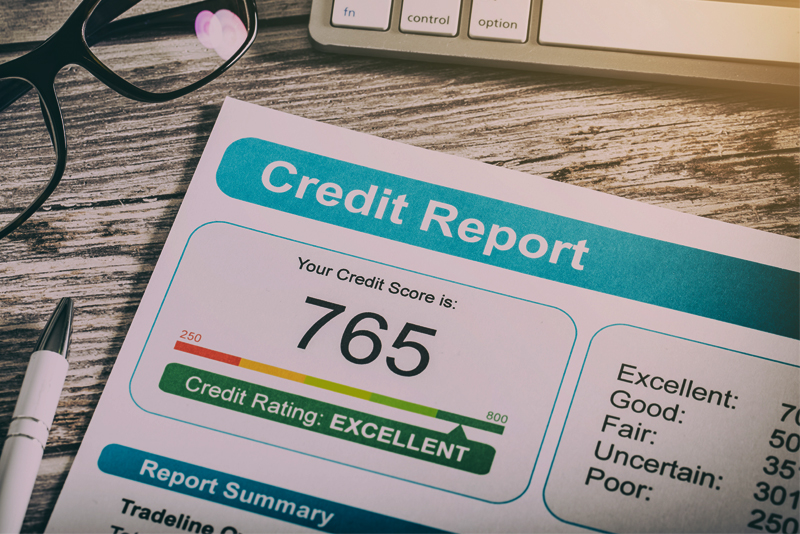Establishing healthy business credit is essential to ensure a company can thrive and grow. If an entrepreneur doesn’t take measures to establish credit in their business name, they may miss out on opportunities and even pay more than they have to for goods and services.
Does a company’s business structure matter? Moreover, does being a Limited Liability Company (LLC) or corporation help build business credit? Absolutely!
Operating as an LLC, S Corporation, or C Corporation is one of the most effective ways to begin establishing a credit record in the business name. That’s because those entity types are separate, independent entities from their owners. They are responsible for their own finances and legal matters and can have their own credit record and score.
Conversely, a sole proprietorship or partnership is not a legally separate entity from its owners. Therefore, the company does not have its own credit record. Only the owners’ personal credit record is associated with the business.
Why Business Credit Matters
Having good business credit can benefit virtually any company. It’s especially advantageous when a business wants to attract investors, secure loans, pay preferred rates to suppliers, or get extended payment terms (e.g., a net due date of 45 or 60 days after receiving invoices).
Advantages exist for businesses that have their own credit record. Vendors, suppliers, and potential customers might perceive a company with its own credit score as more legitimate and trustworthy. They might check a company’s credit before engaging in business, and they may consider the credit score when negotiating pricing and contract terms and conditions. Likewise, lenders and investors will consider a business’s credit score. In fact, some only fund businesses established as formal legal entities. A favorable business credit score signifies that a company handles its finances well.
Benefits of a Good Business Credit Score
- More likely to qualify for contracts
- Easier time securing money from investors
- Lower interest rates on business loans
- Lower insurance premiums
- Attractive payment arrangements and credit limits with vendors and suppliers
- Lower prices on products and services
As you can see, a sole proprietorship or partnership may miss out on significant opportunities and cost savings because it doesn’t have a business credit record.
How a Business Credit Scores is Generated
Business credit rating bureaus collect various information about companies when evaluating them and assigning credit scores. Each has its own formula for calculating scores.
Dun & Bradstreet, Experian, and Equifax are the three main business credit bureaus. Several others are out there, too. Some specialize in helping companies in specific industries (for example, Seafax, which focuses on providing national and international credit information to businesses in the food industry).
Credit scores help other organizations and individuals identify if entering into transactions or a contract with a company might put them at financial risk. Different vendors and lenders report different types of data to the bureaus. Credit rating agencies may look at the business size, the number of employees, how long the company has been in existence, financial performance, payment history, public records data, and more.
7 Ways to Start Building Business Credit
- Obtain an EIN and a D-U-N-S Number – The credit rating bureaus may use a company’s EIN (employer identification number) or D-U-N-S number ((Data Universal Number System number from the Dun & Bradstreet) for tracking a business’s payment and debt history. An LLC or corporation requests an EIN from the IRS during the entity formation process. Business owners must request a D-U-N-S number from Dun & Bradstreet. Other credit reporting agencies have business ID numbers for tracking and reporting companies’ credit. Those business identifiers are automatically issued.
- Create a Habit of Paying On-Time – Engaging with vendors and creditors that report their customers’ payments to the credit bureaus will help build a business credit score. Making on-time or early payments is essential for earning a high credit score.
- Get a Business Credit Card – Getting a business credit card, using it responsibly, and paying each statement on time helps establish a consistent payment history. Credit card companies reliably report payment activity to the major credit bureaus.
- Build Trade Credit – Establishing trade credit with suppliers also helps boost credit scores. Known as a “tradeline,” trade credit is an arrangement allowing a business to pay several days or weeks after receiving products or inventory.
- Open a Business Bank Account – Aside from a company bank account’s importance for credit-building purposes, keeping business financial transactions separate from those of the LLC or corporation owners is a business compliance necessity. Failure to do so could mean losing the limited liability protections the business structure provides to its owners — and that could have dire consequences!
- Build a Respectable Personal Credit Score – It’s also helpful for business owners to keep a healthy personal credit score. Before engaging with an LLC or corporation, investors and vendors may also consider that number.
- Monitor Your Credit Score – Business owners should monitor their company profiles on each of the major credit bureaus and others they have profiles on. Each agency collects data from different sources, and information might not match across them. If any outdated or incorrect information is detected, business owners should contact the bureau to resolve any errors or discrepancies.
Register Your Business Entity with CorpNet
My team of business filings experts can assist you with many aspects of starting your LLC or corporation.
- Conducting a business name search
- Filing articles of organization (LLC) or articles of incorporation (C Corp)
- Electing S Corporation tax status
- Obtaining an EIN
- Registered agent services
- Applying for business licenses and permits
- Registering for payroll taxes
That’s just a sampling of how we can assist you in creating your business entity and building your business credit.
Ready to open more opportunities for business growth and success? Let’s get started together!





